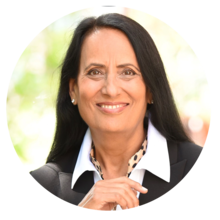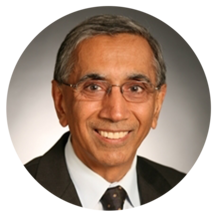About this Presentation
The need for a better math education is clear. With the ever-increasing advancement in technology and the tighter integration of the global economy, relevant social and business problems are more complex. Industries which require technology and science-based solutions are becoming the engine fueling countries growth. Math offers a rigorous and systematic process to improve problem-solving skills, which are useful not only for the highly complex but also for many daily life decisions. However, despite an abundance of teaching and learning resources, success in improving math education is still minimal. The purpose of this presentation is to show that by focusing on developing key thinking processes, students can improve their quantitative reasoning skills. The proposed thinking skills are inductive thinking, deductive thinking, and analysis. To enhance those thinking skills, three graphic organizers referred to as Problem Solving Maps (PSM) and that were developed after years of using TOCFE tools will be presented. I will talk about the analysis that was conducted to create the PSM system, an introduction to the system, my personal experience using it with my two daughters, and finally, different case studies including one from the Philippines were hundreds of teachers were trained, impacting thousands of children. Video length: . PDF: slides.
What Will You Learn
To help you get the most value from this session, we’ve highlighted a few key points. These takeaways capture the main ideas and practical insights from the presentation, making it easier for you to review, reflect, and apply what you’ve learned.

Traditional methods of teaching math often fail to engage students and can lead to a lack of understanding.
Problem-solving maps, a new teaching methodology, can help students understand and solve math problems more effectively.
This approach breaks down problems into manageable parts, boosts student confidence, and allows teachers to diagnose and address issues quickly.
Instructor(s)
Danilo Sirias
Dr. Danilo Sirias holds a master’s degree in Industrial and Systems Engineering and a Ph.D. in Business Administration from The University of Memphis. He is recognized as a TOCFE trainer and TOCICO thinking process implementer. Currently serving as a Professor in the Department of Management and Marketing at Saginaw Valley State University, Dr. Sirias specializes in leveraging the Theory of Constraints to optimize patient flow across various medical settings such as Emergency Departments, Inpatient Units, Operating Rooms, and Outpatient Clinics. Notably, he co-authored the book

Ms Alka Wadhwa
Alka Wadhwa is an experienced consultant and process improvement expert with over 24 years of expertise in the Theory of Constraints (TOC), Lean Six Sigma, and organizational performance optimization. She has successfully led projects in healthcare, financial services, and manufacturing, driving significant improvements such as a 67% boost in hospital operations and a 140% increase in outpatient visits.
Previously, Alka Wadhwa spent 17+ years at GE Global Research Center, where she led initiatives to enhance various GE businesses through advanced technologies, process redesign, and system optimization. Founder of Better Solutions Consulting, LLC, she specializes in using TOC, Six Sigma, and data analytics to streamline operations and build high-performance teams.
Her work has earned her multiple accolades, including the Empire State Award of Excellence in healthcare.

Dr Gary Wadhwa
Dr. Gary Wadhwa is a Board Certified Oral & Maxillofacial Surgeon with extensive experience in the field. He completed his Oral & Maxillofacial Surgery training at Montefiore Hospital, Albert Einstein College of Medicine in Bronx, NY, and has served as an Attending at prestigious institutions like St. Peters Hospitals, Ellis Hospital, and Beth Israel Hospital in NY. With a career spanning over two decades, he was the former CEO and President of a group specialty practice in NY from 1994 to 2015. Dr. Wadhwa holds an MBA from UT at Knoxville, TN, and has undergone additional training in System Dynamics at MIT, Health System Management at Harvard Business School, and Entrepreneurship and healthcare innovations at Columbia Business School. Committed to expanding access to Oral & Maxillofacial Surgery care, he is currently engaged in a meaningful project to provide healthcare services to underserved populations in inner city and rural areas through non-profit Community Health Centers.
